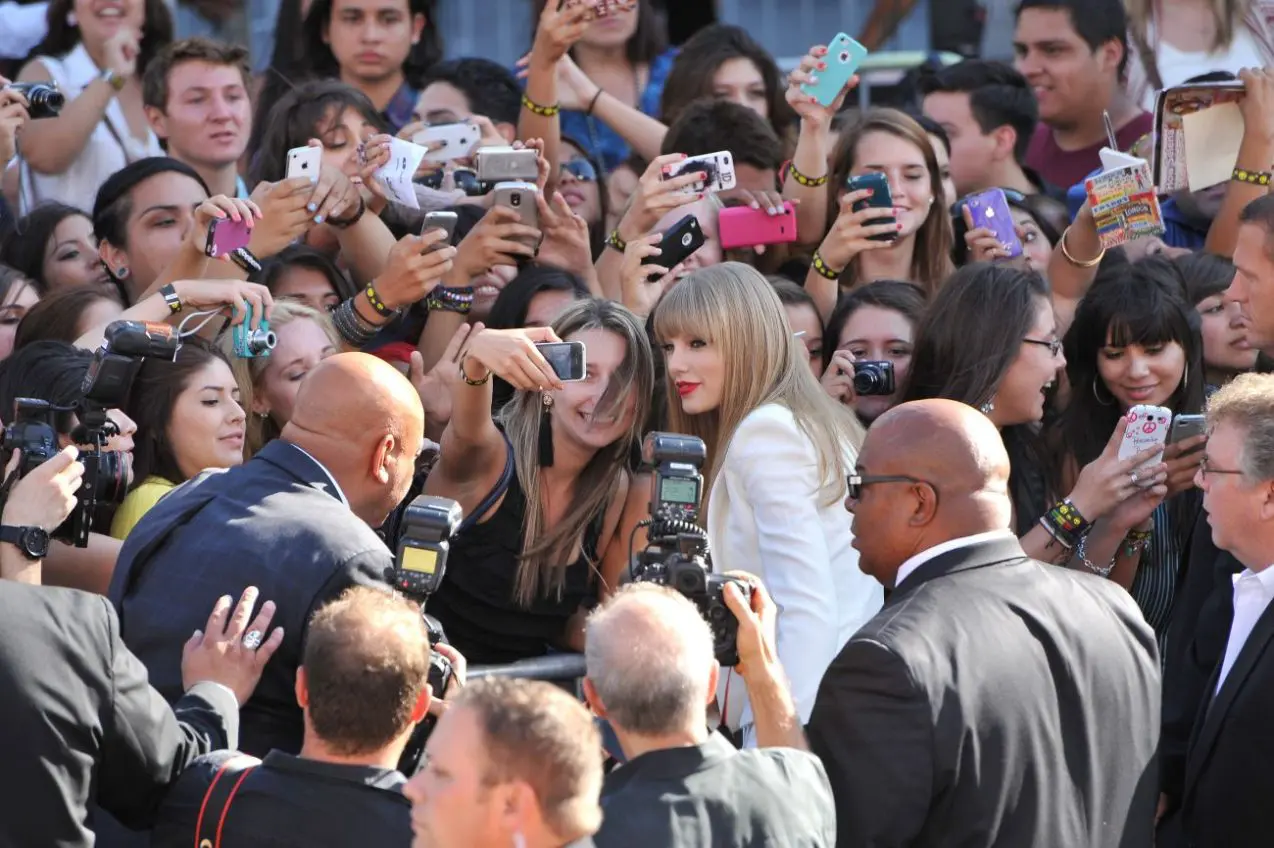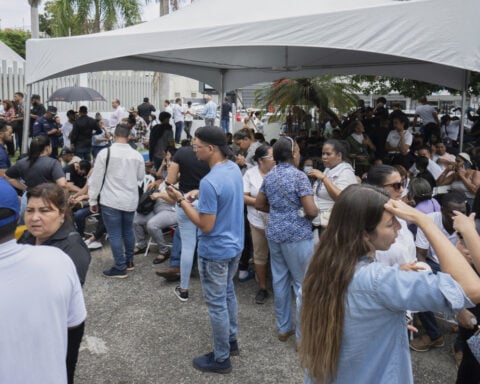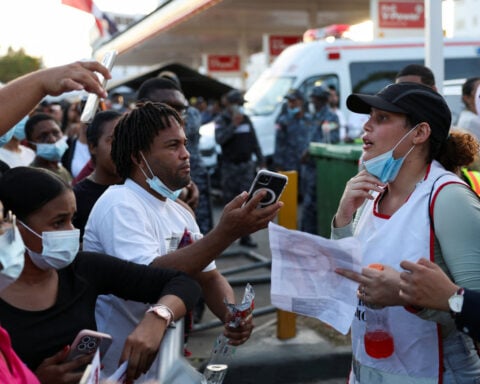Taylor Swift’s recent “Eras” tour stop, where she showed up to support her boyfriend at an NFL football game, has highlighted the intense devotion of modern fandom. Her appearance also illustrated how that kind of tribal loyalty is shaping politics, including the enduring support for former President Donald Trump.
The passion of mega fans, once considered frivolous, is proving to be an increasingly powerful force that drives culture, economics and even extremism. Swift’s stadium concert tour is estimated to inject millions into local economies. Trump’s unwavering base continues to embrace the former president despite his 2020 loss and legal woes.
Both Swift and Trump have tapped into a human need for community and cultivated a tribal identity that feeds on itself, according to experts on fan culture. This phenomenon helps explain why Trump’s support remains high despite his political setbacks.
“Back in the day, if you didn't belong to a group you were going to die,” said Lynn Zubernis, an expert on fandom at West Chester University. “So we are really highly motivated to find a group of like-minded people to belong to.”
Celebrities like Swift or public figures like Trump provide a kind of purpose and surrogate success for their fans. Experts say this vicarious boost of hormones when “your team” wins explains the tribal loyalty of fandoms.
New technology and social media now supercharge that sense of identity and community. It’s never been easier for mega fans to connect, coordinate and even harass opponents in the name of their idols. This mob mentality underpins recent phenomena like toxic “stan culture” among music fans.
Swift and Trump have different personas but both instinctively tap into their core followers’ values and anxieties. Swift’s raw songs about universal themes like heartbreak “drill directly into the souls of teenage girls,” wrote one cultural historian. Trump voiced the racial and economic grievances of his base who felt left behind by social change.
The shared identity and kinship of fandom becomes self-sustaining, ultimately eclipsing the original idol. Supporters form their closest relationships with fellow fans.
“The celebrity sparks the community,” said Daniel Cavicchi, an expert on music fandom at Rhode Island School of Design. “The community happens after. That, for most fans, is what is most powerful and sustaining.”
This us-versus-them mentality is deeply tribal. Perceived threats produce an escalating “out-group animosity” and desire for revenge, according to experts.
MAGA merchandise, like former President Trump’s mugshot on coffee mugs and T-shirts, produces quick signals of allegiance. Swifties now populate football stadiums alongside football fans. But toxic fandom also fueled the Jan. 6 Capitol attack and still enables Trump’s false claims of a stolen election.
Polling shows Trump’s supporters are deeply entrenched, embracing his defiant persona. Swift will likely top charts and sell out stadiums. Experts say the social power of fandom is only growing.
“We’ve all seen what those powerful connections can deliver: an upset victory on Election Day, a concert tour that quite literally breathed new life into local economies, an unprecedented attack on the Capitol,” wrote the original article’s author. “When fandoms are at the height of their power, they’re capable of a lot.”

 Trump has begun another trade war. Here's a timeline of how we got here
Trump has begun another trade war. Here's a timeline of how we got here
 Canada's leader laments lost friendship with US in town that sheltered stranded Americans after 9/11
Canada's leader laments lost friendship with US in town that sheltered stranded Americans after 9/11
 Chinese EV giant BYD's fourth-quarter profit leaps 73%
Chinese EV giant BYD's fourth-quarter profit leaps 73%
 You're an American in another land? Prepare to talk about the why and how of Trump 2.0
You're an American in another land? Prepare to talk about the why and how of Trump 2.0
 Chalk talk: Star power, top teams and No. 5 seeds headline the women's March Madness Sweet 16
Chalk talk: Star power, top teams and No. 5 seeds headline the women's March Madness Sweet 16
 Purdue returns to Sweet 16 with 76-62 win over McNeese in March Madness
Purdue returns to Sweet 16 with 76-62 win over McNeese in March Madness








